Swiss Culture
A country with four languages
Swiss culture is a multifaceted mosaic, shaped by the diversity of languages, traditions, and regions of the country. With four official languages – German, French, Italian, and Romansh – Switzerland unites influences from various European cultural circles. This cultural intermingling is reflected in the rich literary, musical, and artistic scene.
Swiss culture is also known for its deeply rooted folk customs and festivals, celebrated throughout the year and ranging from historical events to seasonal transitions. Additionally, there is a strong tradition in craftsmanship, design, and architecture, which harmoniously blends modernity and tradition.
Proud of its diversity and neutrality, Swiss culture also promotes a strong sense of community and identity, evident in the country's high quality of life and social cohesion.
Swiss cuisine
Swiss cuisine is characterized by its regional diversity. It combines traditional dishes that offer comfort and coziness with modern culinary trends. This reflects Switzerland's rich cultural mix and alpine tradition.
5 typical dishes from Switzerland
These dishes reflect the diversity and richness of Swiss cuisine, characterized by regional influences and a love for cheese and high-quality ingredients.
1. Raclette
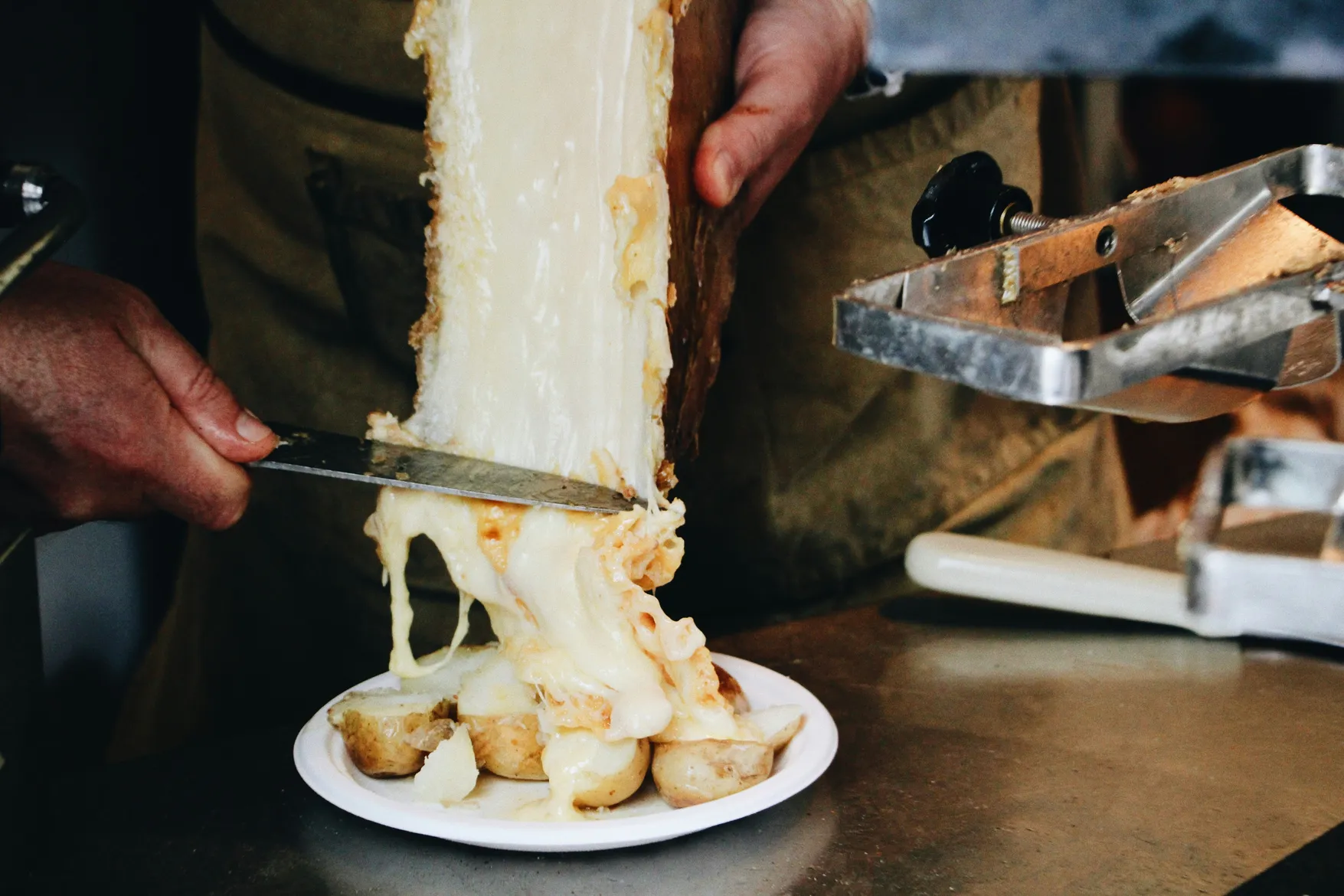
Raclette ist ein traditionelles Schweizer Gericht, bei dem geschmolzener Käse und Geselligkeit im Vordergrund stehen. An einem speziellen Raclette-Grill wird der Käse erhitzt und geschmolzen, bevor er über eine Vielzahl von Beilagen wie gekochte Kartoffeln, eingelegtes Gemüse und Fleisch geschabt wird. Dieses interaktive Essenserlebnis ist ideal für Zusammenkünfte und bietet eine herzhafte, individuelle Geschmackserfahrung.
Raclette is a traditional Swiss dish that centers around melted cheese and sociability. On a special raclette grill, the cheese is heated and melted before being scraped over a variety of sides such as boiled potatoes, pickled vegetables, and meat. This interactive dining experience is ideal for gatherings and offers a hearty, personalized taste experience.
2. Fondue

Fondue is also a communal meal that revolves around melted cheese. Here, the melted cheese, often refined with white wine and garlic, is served in a central pot. Guests dip pieces of bread into the cheese mixture using long forks.
Fondue symbolizes coziness and unity and is particularly popular during the cold months. Variations of the classic cheese fondue include oil, broth, or wine fondue, where meat is cooked in hot oil, broth, or wine, as well as chocolate fondue as a dessert.
3. Rösti

Rösti is considered a national delicacy in German-speaking Switzerland. Originally a farmer's breakfast, it consists of coarsely grated potatoes that are fried until crispy in butter or oil. Often served as a side dish, it can also be enjoyed as a main course when enhanced with ingredients such as bacon, onions, or cheese.
4. Birchermüesli

Bircher muesli is a healthy and nutritious Swiss breakfast. Typically, it consists of rolled oats, fresh or dried fruits, and nuts, mixed with milk, yogurt, or fruit juice. It offers a refreshing start to the day and is popular worldwide.
At the beginning of the 20th century, Bircher muesli was originally created by Dr. Maximilian Bircher-Benner as a dinner. However, modern variations of Bircher muesli or other types of muesli are mainly eaten for breakfast.
5. Bündnerfleisch
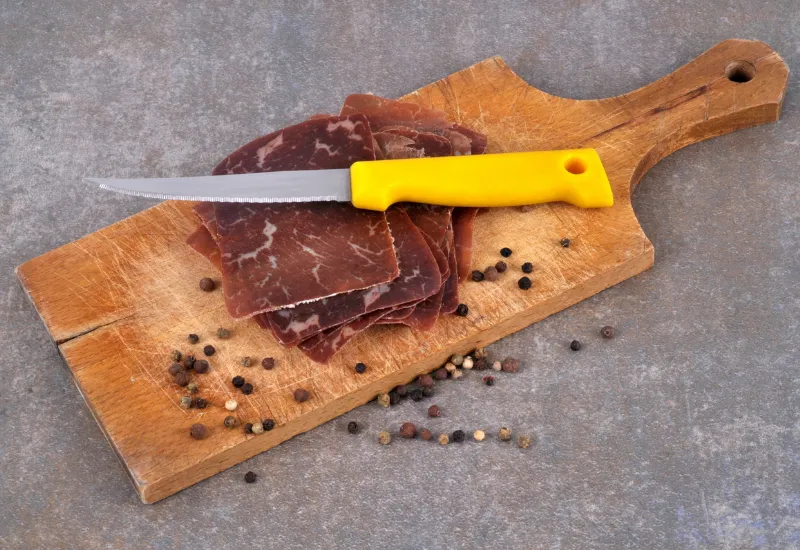
Bündnerfleisch is a specialty from the Swiss canton of Graubünden. It is typically air-dried beef. Over months, Bündnerfleisch is naturally dried under special climatic conditions, giving it its unique flavor and tender texture. It is then thinly sliced and used as a delicacy or in various dishes.
Getränke
At social gatherings in Switzerland, alcohol is typically consumed in moderate amounts, with a focus on quality and enjoyment. The Swiss drinking culture is characterized by its appreciation for local products and traditions.
Mineral Water

Mineral water is an essential part of Swiss drinking culture and health consciousness. Switzerland, famous for its crystal-clear lakes and springs, offers an exceptional variety of mineral waters.
With its numerous natural sources, it is considered one of the leading nations in the production and consumption of mineral water. Swiss mineral waters are distinguished by their purity and varying mineral content, giving them unique taste profiles
Hot Beverages

In Switzerland, hot beverages like coffee and hot chocolate are deeply rooted in everyday culture. These drinks represent both the quality of Swiss products and the country's cozy way of life.
Especially famous are coffee specialties like the alcoholic "Schümli-Pflümli," an espresso with whipped cream and plum liqueur, or the classic "Café Crème." Hot chocolate made from world-renowned Swiss chocolate offers a rich, creamy taste experience. It is particularly popular during the cold season.
Schnapps and Liqueur
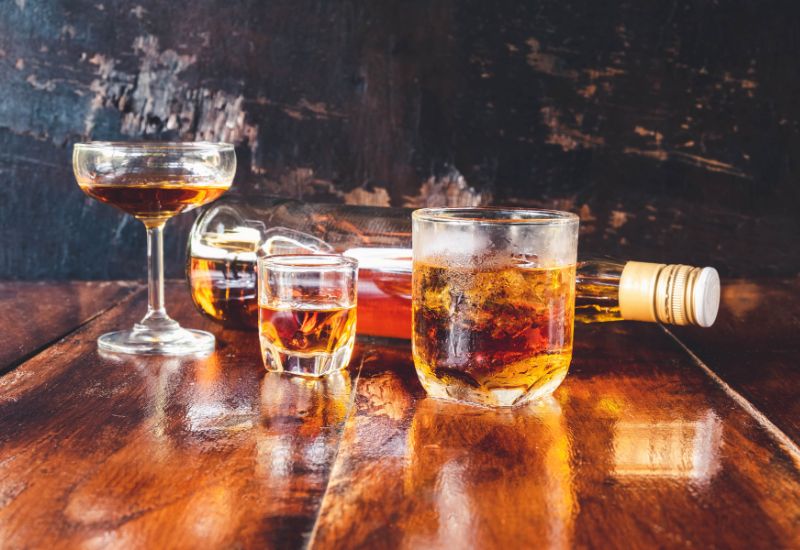
Swiss schnapps and liqueurs are an expression of local distilling art and tradition. Made from high-quality fruits such as apples, pears, and cherries, they are distinguished by their finesse and variety of flavors. Especially well-known are fruit brandies and herbal liqueurs like the "Appenzeller Alpenbitter."
Traditional Festivals and Customs
Switzerland observes numerous traditional festivals and customs. They showcase the cultural diversity and history of Switzerland and are an integral part of Swiss identity.
Swiss National Day (Federal Celebration)
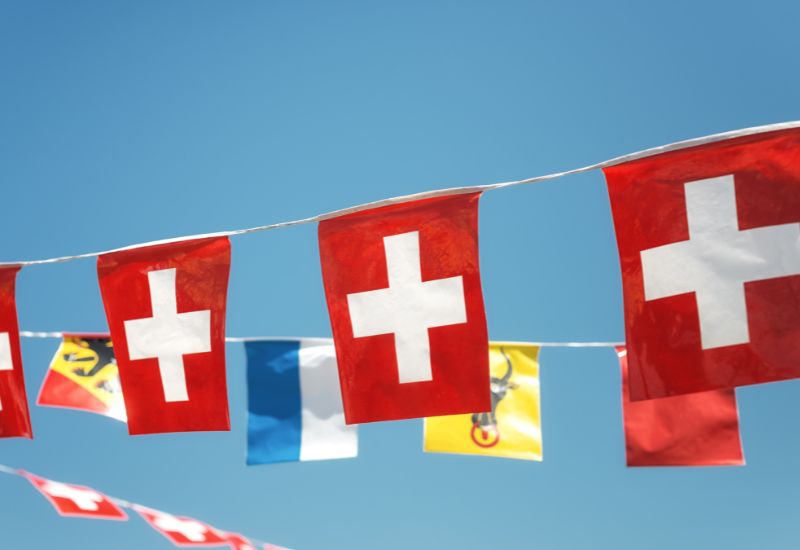
Swiss National Day on August 1st commemorates the founding of the Swiss Confederation. There are fireworks, folk festivals, and many Swiss decorate their homes with Swiss flags.
Sechseläuten in Zurich
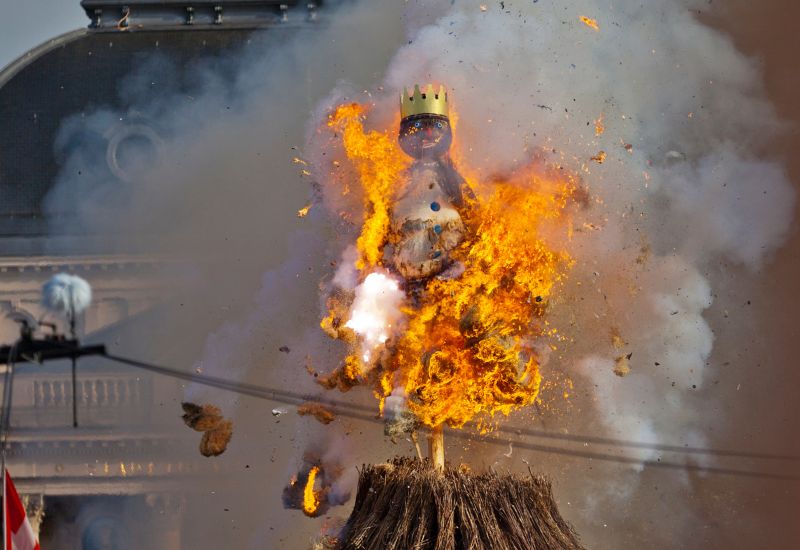
Sechseläuten takes place every year in April in Zurich. The highlight of the spring festival is the burning of the Böögg, a snowman figure that symbolizes winter, on Sechseläutenplatz.
Alpine Descent

The Alpine Descent marks the end of summer when the cows are driven down from the mountain pastures into the valley. For this occasion, the cows are festively decorated, and there are local markets and celebrations.
Fasnacht
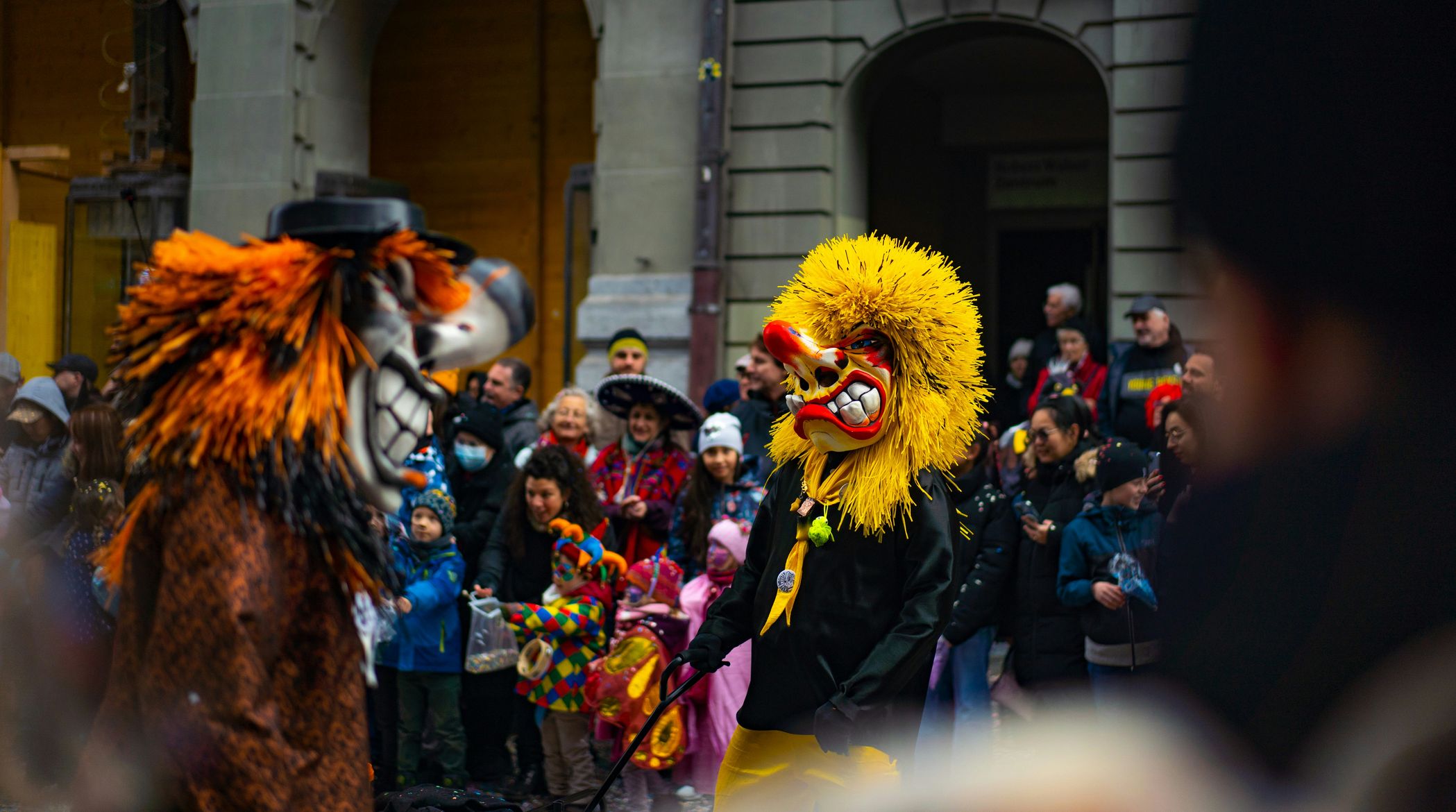
Fasnacht is the Swiss version of Carnival. The celebrations take place shortly before Lent and include parades, masks, and colorful costumes. The Fasnacht events in Basel and Lucerne are particularly famous. The Basel Fasnacht has been part of UNESCO's Intangible Cultural Heritage since 2017.
Diversity and Quality in Switzerland
Swiss culture reflects the unique identity of a country that, through its multilingualism and geographical location, forms a bridge between various European cultures. Its festivals, culinary specialties, artistic achievements, and commitment to quality and innovation highlight the vibrant and dynamic nature of Switzerland, fascinating and inspiring both visitors and locals alike.
Are you ready to gather new cultural impressions in Switzerland?
Book the right digital vignette for your trip to Switzerland right here.






